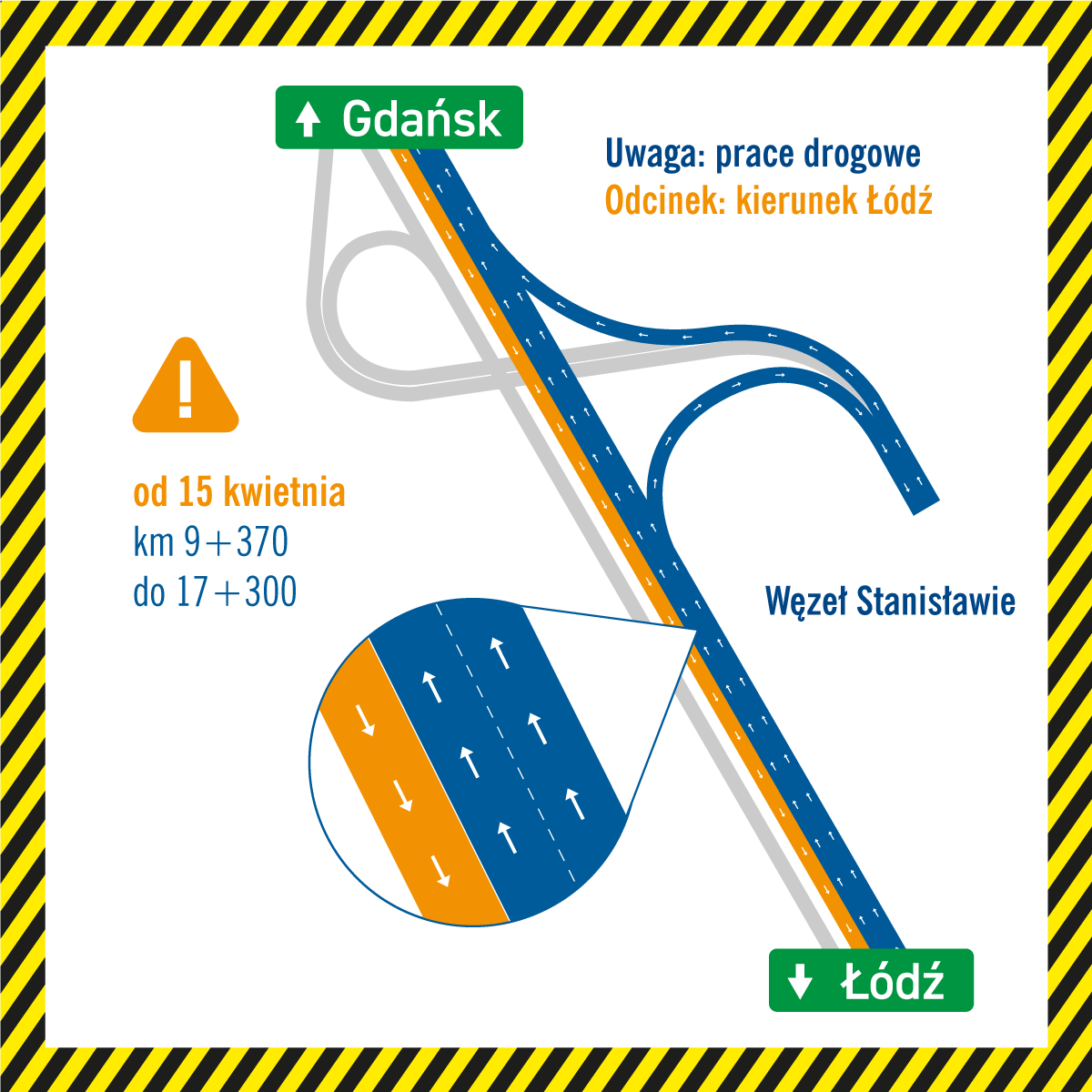AmberOne initiated the Meadow Project on its premises, which is a test to replace lawns with flower fields. A hectare of flower meadow was sown in April at the Stanisławie junction.
The Meadow project is carried out in cooperation with the Meadow Foundation, which has been promoting and planting flower meadows for years. On the test area on SPO Stanisławie, a precise mixture of seeds of 38 types of plants, among others cornflower, sage, clover, chicory, eryngium, carrots, poppy seeds, a melilot and an evening primrose were used. About 100,000 plants with 6 million individual flowers will grow in the meadow at the peak of summer, which could feed 160,000 bees and other pollinators!
Sustainability issues are close to GTC and are a natural part of our business. Therefore, with a view to climate protection, we want to try to minimize the impact of our Motorway on the environment. The Meadow project, as part of the wider AmberGreen programme, has the potential to have a real impact on reducing air pollution near the Motorway. We are pleased to cooperate with the Meadow Foundation. We hope that the test seeding of our meadow field will work well under motorway conditions, which will allow us in the future to replace grass along the motorway with full-size flower meadows, which in addition to the positive impact on the climate will improve the aesthetics of AmberOne – says Torbjörn Nohrstedt, President of Gdańsk Transport Company S.A.
The Meadow project is part of the AmberGreen programme, which aims to implement “green” solutions. The expected effect of the action is to reduce the environmental impact of AmberOne, by gradually introducing eco-friendly solutions to its infrastructure and environment, e.g. LED lighting, solar panels and waste segregation on MOPs, flower meadows, tree and shrub plantings, collaboration with local communities including beekeepers and promoting environmental education.
The construction and maintenance of motorways are needed to facilitate transport. However, they take up a lot of space, cut through important natural areas and require constant efforts to maintain greenery. That is why a modern and ecological approach to green spaces is so important. In Poland, we mow more than 750,000 m2 of lawns, spending 2 billion zlotys, burning hundreds of thousands of litres of fuel and taking places to live pollinators. Until now, roadside areas have been mowed several times a year, maintained like lawns, and have been of little use to nature. Now that’s changing. Thanks to flower meadows, you can reduce the costs associated with mowing and exhaust emissions and create places that will be used by pollinators, among other bees and butterflies – explains Maciej Podyma from the Meadow Foundation.
In 2020 almost 18 million vehicles used the AmberOne A1 Motorway, with an average daily volume of around 49,000 vehicles. Flower meadows reduce the noise level of cars, and the mixture of plants used has air purifying properties. The hectare meadow under favourable conditions binds up to 10 tonnes of CO2 per year and absorbs up to 120 kg of PM 2.5 dust.
Perhaps the innovative design of creating flower meadows along AmberOne will inspire similar solutions on other roads.

